When Was Leonardo First on the World Wide Web?
Today (12 March 2019) celebrates the 30th anniversary of the World Wide Web. Needless to say to say this historical moment was critical for Computer Art as it opened the door to a whole new movement of Net Art. Leonardo reserve a few bragging rights for being one of the first websites online. But the mystery of exactly when we launched on the internet, and what the first URL was, is still open for debate.
First, let us give our thanks to Craig Harris, Judy Malloy, Paul Brown and Nisar Keshvani for their pioneering work getting Leo online! Here is a breakdown of our digital timeline.
1988
Leonardo's first forays into digital publishing were two bulletin boards: FineArt Forum and F.A.S.T. These bulletin boards predate internet browsers and were accessed over various networks such as the Well, Compuserve and MCI. FineArt Forum, founded by Ray Lauzzana, had been distributed over academic networks since May 1987 through Bitnet, CSNET, ARPA, Internet and Janet, but was supported by Leonardo/ISAST beginning in 1988, when it was added to the WELL system under the Art Com Electronic Network (ACEN), operated by Carl Loeffler. At this time, ISAST begin publishing the subscription publication F.A.S.T, the Fine Art, Science and Technology Bulletin Board, also through the WELL and MCI networks under ACEN, and available as a diskette!
The announcement below appears in the first issue of Leonardo in 1989 (Volume 22).

1991
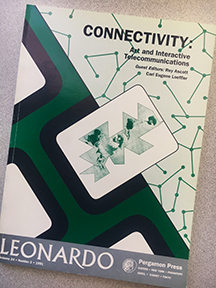
In 1991 Leonardo published a special Art and Interactive Telecommunications issue with guest editors Roy Ascott and Carl Loeffler. An article by Leonardo Executive Editor Roger Malina, "Fineart Forum and F.A.S.T.: Experiments in Electronic Publishing in the Arts," presents an account of Leonardo/ISAST's early digital presence.
1993
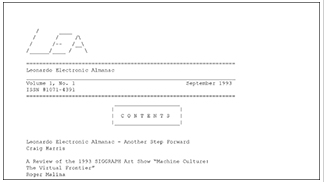
1993 launched the Leonardo Electronic Almanac under founder and editor-in-chief Craig Harris. Early LEA was distributed by electronic mail. An essay by Craig Harris, "Historical Perspective: Leonardo Electronic Almanac," that recounts the beginnings of LEA was published in LEA in 2010.
1994
The Leonardo On-Line website was founded in 1994 and was, according to ISAST lore, one of the first 400 websites on the internet! The URL first appeared in Leonardo journal issue 1 of 1995: http:/www-mitpress.mit.edu/Leonardo/home.html [we think the missing slash is sic but the dash is correct]. Was this the first URL? What did the site look like? The ISAST office doesn't have records!
1994 also brought the first hyperlinked issue of FineArt Forum. You can read an archived version of that issue HERE. In the editorial, fAf editor Paul Brown wrote: "This issue will be the first to appear with full hyperlinking.... Who needs to read when you can point and click?"
1995
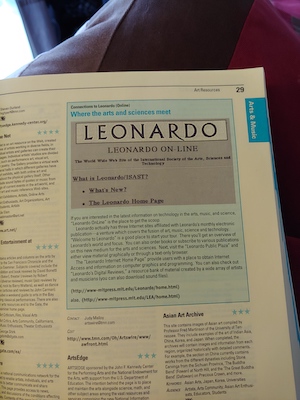
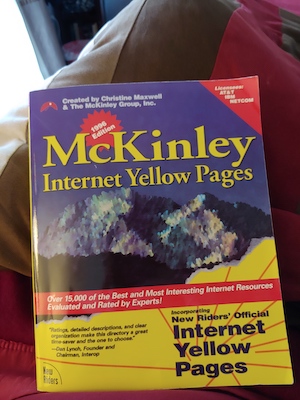
Leonardo On-Line and the Leonardo Electronic Almanac were listed in this 1995 version of the McKinley Internet Yellow Pages paper directory. This was before Google Search! This listing also notes that LEA had moved to the World Wide Web at http://www-mitpress.mit.edu/LEA/home.html.
1999
The first screenshot we could find of the actual Leonardo On-Line landing page was in 1999, also hosted on MIT Press website.
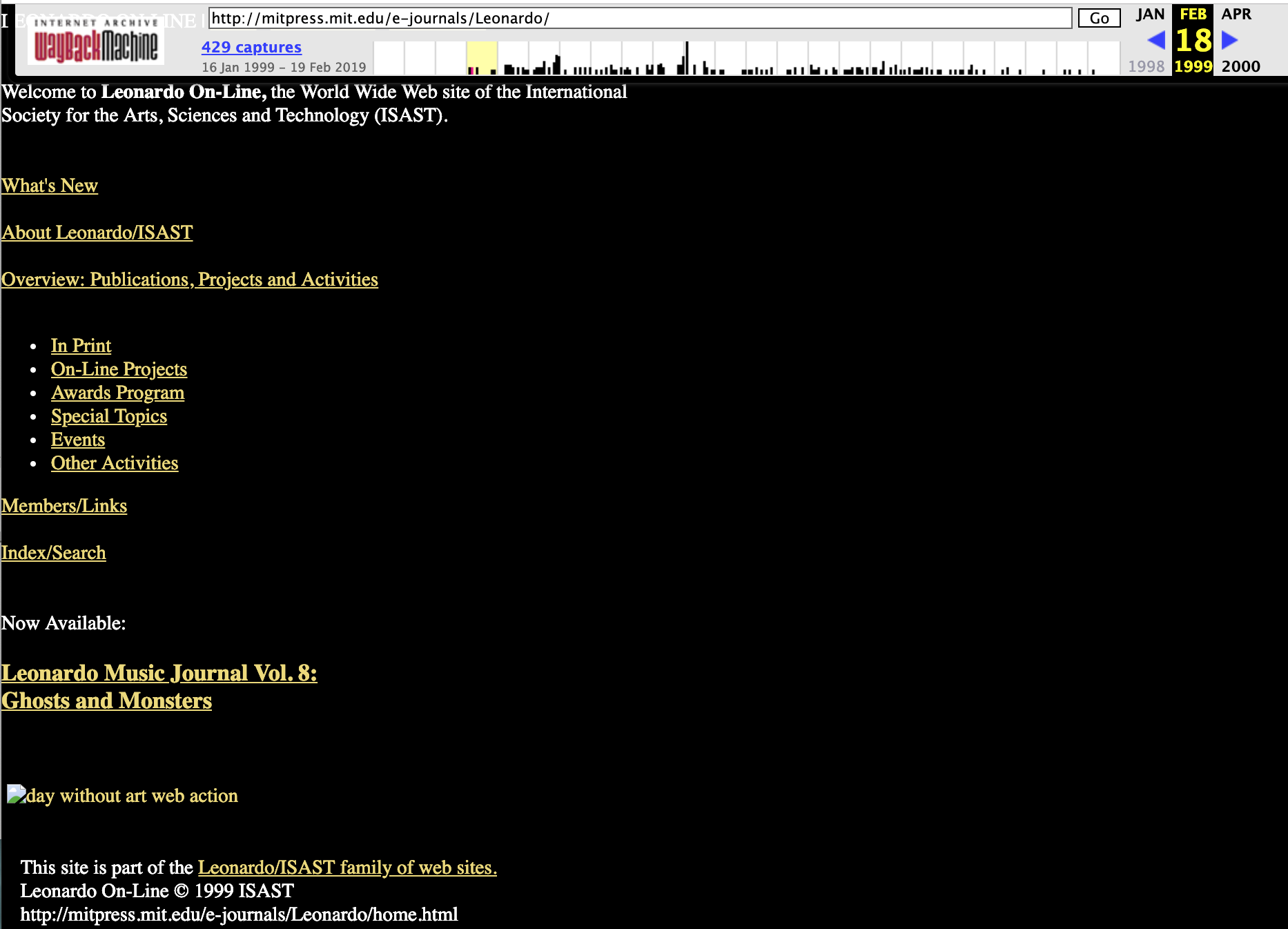
2000
At the beginning of the 21st century, we moved our URL to ram.leonardo.org.
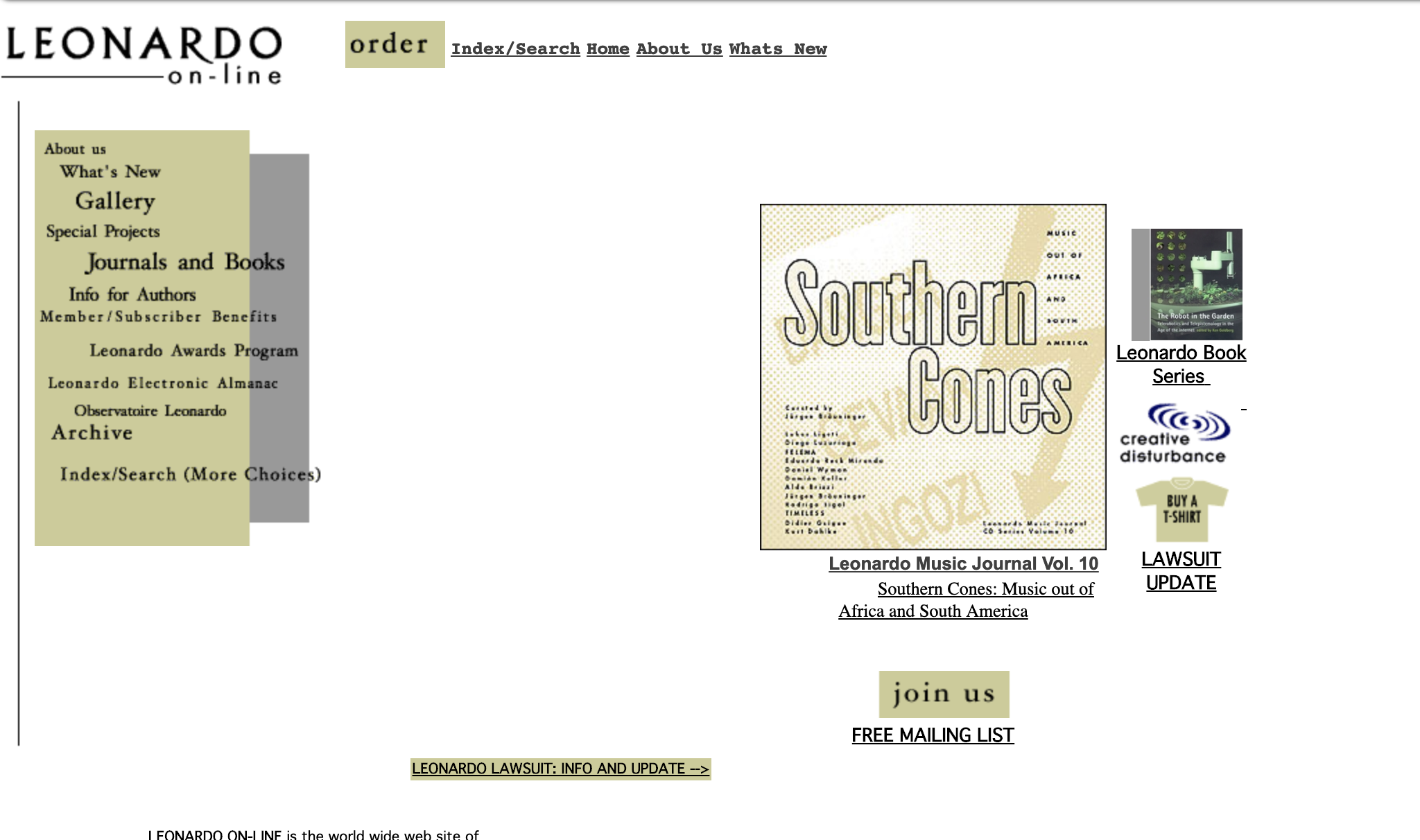
Footnote: Initiatives of LEA under Editor-in-Chief Nisar Keshvani
- Established a robust search-able archive of past issues of the journal for academics/researchers
- Established LEA Bibliographies produced in collaboration with key artists, scientists and technologists in the field, providing educators, students and researchers with a primer to seminal texts within their field developed in collaboration with key experts in the community
- Established LEA’s Luminaries of Art, Science and Technology dedicated to luminaries, pioneers and individuals who have made significant contributions to the international art, science and technology community
- Established LEA Curriculum providing educators with a resource to access curriculum developed and taught by international experts teaching at various universities around the world
- Established LEA Discussion (LEAD) accompanying selected Special Issues. A live chat session with authors/artists and a moderated discussion list for readers to engage with authors
